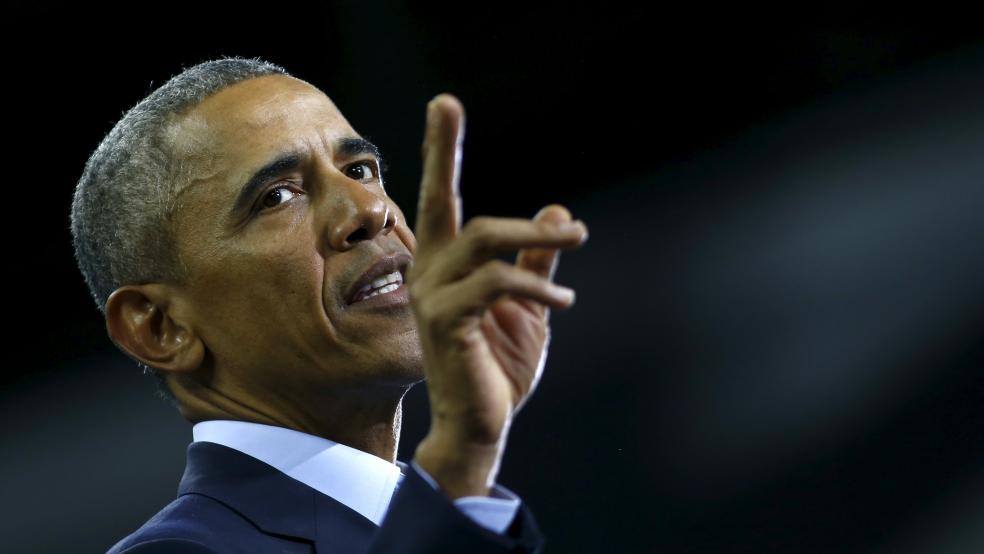The Obama Administration on Wednesday unveiled a new strategy for providing children from low-income families with greater access to subsidized meals during the summer months when the federal school lunch program is not available to many.
The plan includes issuing food stamp-style electronic benefit cards to young people to purchase meals over the summer to reduce hunger among the poor. At the same time, the Agriculture Department will launch a five-state demonstration project next fall that will for the first time use Medicaid data to locate and certify low-income students for free or reduced-price meals.
Related: 5 Things Obama Could Actually Get Done This Year
The president intends to ask Congress next month for $12 billion to fund the program over the coming decade, but it is clear he will use whatever executive powers he has to move the project along. With time running out on his second term and few prospects left for bipartisanship on Capitol Hill, President Obama is stepping up his controversial use of executive orders to add to his domestic legacy.
On Monday, Obama announced he was unilaterally banning solitary confinement for juvenile offenders in the federal prison system. He asserted in a column he wrote for the Washington Post that the practice was overused and “has the potential to lead to devastating, lasting psychological consequences.”
He also outlined a series of other initiatives, including prohibiting federal corrections officials from punishing prisoners who commit “low-level infractions” with solitary confinement and expanding treatment for mentally ill inmates.
Related: Shocking Abuse of Mentally Ill Prisoners Continues
“This is not going to be a fertile period for legislation, that’s for sure, “William Galston, a government policy expert with the Brookings Institution, said on Wednesday in an interview. “ So if he wants to maintain a sense of forward momentum, then he’s going to have to use means other than traditional legislation to change what he thinks he can change.”
Congressional Republicans and conservative groups for years have denounced Obama’s use of executive orders to break logjams or circumvent lawmakers – even while historically this president has made far less use of executive orders than many of his predecessors.
According to the American Presidency Project, Obama has signed 226 executive orders compared to 291 for Republican George W. Bush, 364 for Democrat Bill Clinton, 381 for Republican Ronald Reagan and 320 for Democrat Jimmy Carter, who only served four years in office.
Nonetheless, Republican congressional leaders, governors and presidential candidates have charged that the president has resorted to lawless, unconstitutional tactics to impose his will, and so far, the judiciary—including a federal appeals court – has agreed. The U.S. Appeals Court blocked one of Obama’s actions on illegal immigration amnesty. The case will now go to the Supreme Court.
Related: Obama Cries Uncle on Shielding 5 Million Immigrants from Deportation
Earlier this month, Obama announced measures to try to crack down on gun violence in the wake of the San Bernardino, California shootings and previous mass shootings at schools. Those include requiring dealers to conduct more background checks on perspective buyers and creating programs to address mental health problems. Those orders are being challenged in court by Freedom Watch and other gun-rights organizations.
Other unilateral executive actions related to implementation of the Affordable Care Act and a new Environmental Protection Agency crackdown on carbon emissions by coal-fired power plants will also be adjudicated in the courts.
Obama acknowledged in his final State of the Union address January 12 that he was running out of time to get anything more done, especially with the two parties vying for control of the White House and Congress.
Related: Obama makes pitch to win support for Pacific trade pact
Senate Majority Whip John Cornyn (R-TX) told reporters this week that it was not essential that the Senate consider criminal justice reform this year, despite his keen interest in passing legislation. Cornyn appeared to be backing down in the face of resistance from Majority Leader Mitch McConnell of Kentucky and Sen. Ted Cruz of Texas, who is locked in a tough race with billionaire Donald Trump for the GOP presidential nomination.
If that’s the case, Obama may resort to other executive actions to try to achieve his aims.
Roll Call reported this week that the administration has a number of additional executive orders up its sleeve, “on everything from terrorist detention to campaign finance to environmental issues.”
One possibility would be executive action creating a carbon “cap and trade system” to encourage industry to reduce carbon emissions contributing to global warming. Obama considered this approach early in his first term but then abandoned it after encountering strong congressional opposition.
Another even more controversial move would be to unilaterally close the prison in Guantanamo Bay, Cuba, holding terror suspects dating back to the 9/11 attacks on the U.S. Obama has long vowed to close the facility, but he has encountered strong resistance over the years from conservative lawmakers and even his own Defense Department.





